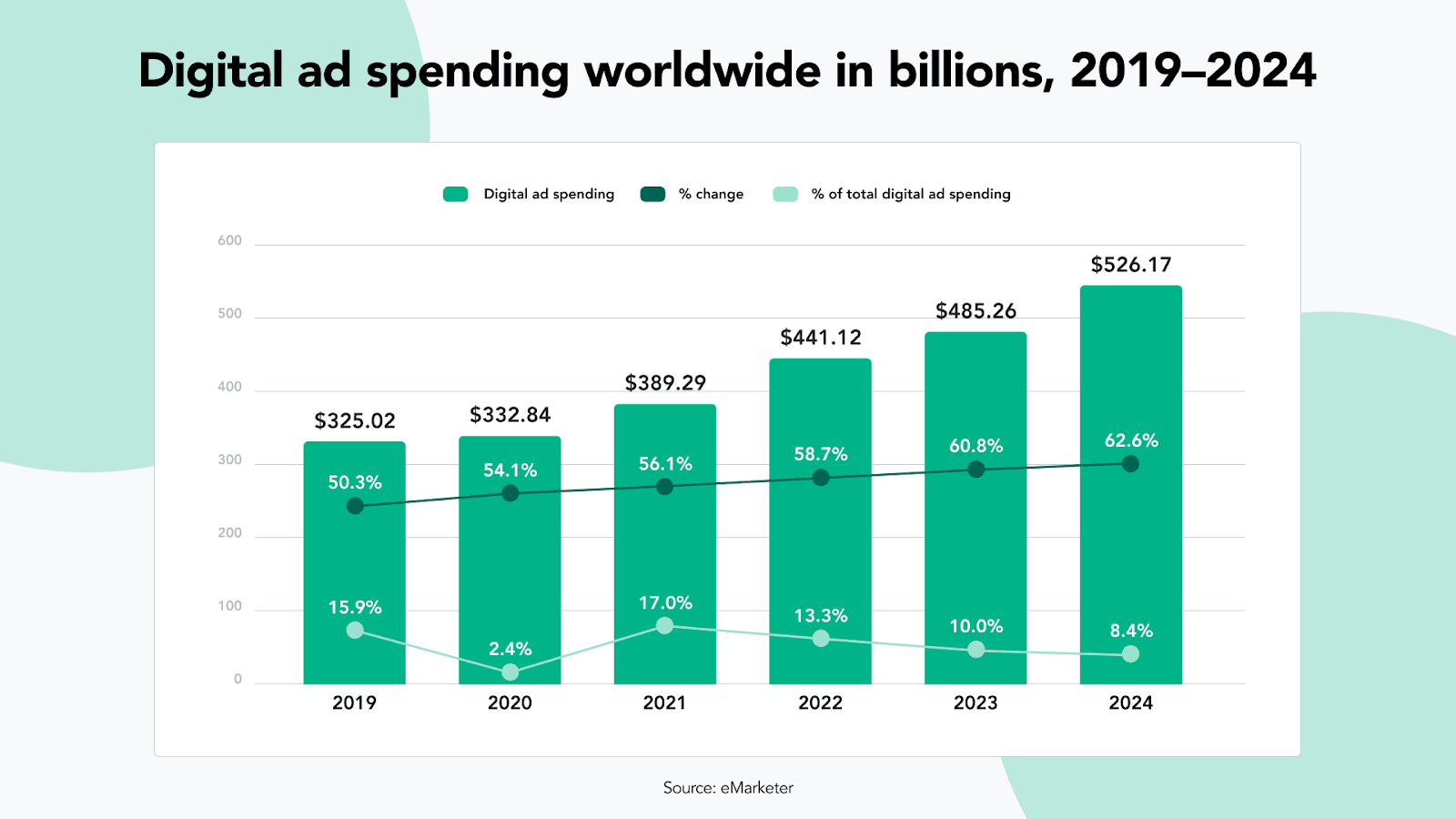
Have you ever wondered why some websites rank higher on search engine results pages (SERPs) than others? The secret lies in backlinks. In the world of modern SEO, backlinks play a crucial role in determining a website’s visibility and authority. Backlinks are links from other websites that point back to your site. They serve as endorsements from other online sources, signaling to search engines that your website is trustworthy and valuable.
But it’s not just about the quantity of backlinks; quality matters too. Search engines like Google consider the relevance and authority of the websites linking to yours. So a single high-quality backlink from a reputable source can outweigh multiple backlinks from low-quality websites.
In this article, we’ll dive into the world of backlinks and explore their essential role in modern SEO. Join us as we unravel the secrets behind building a strong backlink profile and leveraging it to improve your website’s ranking on SERPs. By the end, you’ll have a solid understanding of why backlinks matter and how to harness their power for your website’s success.
Understanding the importance of backlinks in SEO
Backlinks are the backbone of SEO. They act as votes of confidence for your website, telling search engines that other websites find your content valuable and trustworthy. Search engines like Google use backlinks as one of the key ranking factors to determine the relevance and authority of a website. The more high-quality backlinks you have, the more likely your website will rank higher in search results.
But why are backlinks so important? Well, think of backlinks as recommendations from other websites. When a reputable website links to yours, it’s like a trusted friend vouching for your website’s credibility. This can significantly boost your website’s visibility and organic traffic. Moreover, backlinks also help search engines discover new pages on your website, making it easier for them to index your content.
However, not all backlinks are created equal. In the next section, we’ll explore the different types of backlinks and understand their significance in SEO.
Types of backlinks: dofollow vs nofollow
When it comes to backlinks, there are two primary types: dofollow and nofollow links. Dofollow links are the traditional type of backlinks that pass on link equity to your website. In other words, they contribute to your website’s overall authority and can positively impact your search engine rankings. On the other hand, nofollow links are tags added to a link that tell search engines not to consider that link as an endorsement or a vote of confidence.
So, dofollow links are the ones you should aim for when building your backlink profile. These links can significantly boost your website’s visibility and authority. However, that doesn’t mean you should completely ignore nofollow links. While they don’t directly affect your search rankings, they can still drive traffic to your website and increase your online visibility.
In the next section, we’ll discuss effective strategies for building high-quality backlinks that can enhance your website’s SEO performance.
How to build high-quality backlinks
Building high-quality backlinks requires a strategic approach. It’s not just about getting as many backlinks as possible; it’s about acquiring backlinks from reputable sources that are relevant to your niche. Here are some effective strategies for building high-quality backlinks:
Guest Blogging as a Backlink Strategy
Guest blogging involves writing and publishing articles on other websites in exchange for a backlink to your own website. This strategy allows you to tap into the existing audience of the host website and establish yourself as an authority in your industry. When choosing websites for guest blogging, make sure they have a good domain authority and a relevant audience. Additionally, focus on creating valuable and engaging content that provides value to the readers.
Using Social Media for Backlink Generation
Social media platforms provide a great opportunity to generate backlinks and increase your website’s visibility. By sharing your content on social media, you can attract attention from other website owners and influencers who may be interested in linking to your content. Engage with your audience, participate in relevant discussions, and build relationships with other industry professionals. This can lead to natural backlinks and collaborations that can significantly boost your website’s SEO.
Social media is a powerful tool for building backlinks and generating referral traffic. By creating and sharing high-quality content on social media platforms, you can attract the attention of other websites and influencers in your niche. Here are some tips for using social media to generate backlinks:
1. Share your content on social media platforms
One of the easiest ways to generate backlinks through social media is by sharing your content on various social media platforms. When you share your content on social media, you increase its visibility, making it easier for other websites and influencers to discover and link to it.
2. Engage with influencers in your niche
Influencers are individuals or brands that have a significant following on social media and can influence the opinions and actions of their followers. By engaging with influencers in your niche, you can build relationships and potentially earn backlinks and referral traffic. Follow influencers on social media, share their content, and engage with them by commenting and sharing your thoughts on their posts.
3. Participate in social media groups and communities
Social media groups and communities are a great way to connect with like-minded individuals and businesses in your niche. Join relevant groups and communities on social media platforms like Facebook, LinkedIn, and Reddit, and participate in discussions. By sharing your knowledge and expertise, you can build relationships and potentially earn backlinks and referral traffic.
The Role of Influencer Marketing in Acquiring Backlinks
Influencer marketing is a form of marketing that involves partnering with influencers to promote your brand, product, or service. Influencers can help you reach a wider audience and build your brand’s credibility and authority. But did you know that influencer marketing can also help you acquire backlinks?
Here are some tips for using influencer marketing to acquire backlinks:
1. Identify relevant influencers in your niche
The first step in using influencer marketing to acquire backlinks is to identify relevant influencers in your niche. Look for influencers who have a significant following and whose content aligns with your brand’s values and goals.
2. Reach out to influencers and propose a collaboration
Once you’ve identified relevant influencers, reach out to them and propose a collaboration. Offer to create high-quality content that aligns with their niche and interests, and that includes a link back to your website. In exchange, you can offer to promote their content or provide them with a product or service for free.
3. Monitor and analyze your backlinks
After you’ve secured backlinks through influencer marketing, it’s crucial to monitor and analyze them regularly. Use tools like Ahrefs or SEMrush to monitor your backlinks and ensure that they are high-quality and relevant. Remove any low-quality or spammy backlinks that could harm your website’s ranking on SERPs.
Tools for analyzing and monitoring backlinks
To effectively manage your backlink profile, it’s essential to have the right tools at your disposal. Here are some popular tools that can help you analyze and monitor your backlinks:
1. Ahrefs
Ahrefs is a comprehensive SEO tool that provides valuable insights into your backlink profile. It allows you to analyze the quality and quantity of your backlinks, identify potential issues, and monitor your competitors’ backlink profiles. With Ahrefs, you can track your backlink growth, discover new link-building opportunities, and ensure the health of your backlink profile.
2. Moz Pro
Moz Pro is another powerful SEO tool that offers a wide range of features for backlink analysis and monitoring. It provides valuable metrics such as domain authority, spam score, and link equity distribution. Moz Pro also offers a backlink explorer tool that allows you to analyze your competitors’ backlink profiles and discover new link-building opportunities.
3. SEMrush
SEMrush is an all-in-one SEO tool that offers comprehensive backlink analysis and monitoring features. It provides valuable insights into your backlink profile, including referring domains, anchor texts, and top-performing pages. SEMrush also offers a backlink audit tool that helps you identify and remove toxic backlinks that may harm your website’s SEO performance.
In the next section, we’ll discuss some common backlink building mistakes that you should avoid to ensure the effectiveness of your backlink strategy.
Common backlink building mistakes to avoid
Building a strong backlink profile requires a careful and strategic approach. Avoiding these common backlink building mistakes can help you maximize the effectiveness of your backlink strategy:
1. Buying Backlinks
Buying backlinks is a black hat SEO practice that can result in severe penalties from search engines. It’s important to remember that quality matters more than quantity when it comes to backlinks. Instead of buying backlinks, focus on creating valuable and shareable content that naturally attracts backlinks from reputable sources.
2. Using Irrelevant Anchor Texts
Anchor texts are the words or phrases that are hyperlinked to your website. Using irrelevant anchor texts can negatively impact your search rankings and make your backlinks appear unnatural. Ensure that your anchor texts are relevant to the content they are linking to and provide a clear context for search engines and users.
3. Neglecting Link Diversity
Having a diverse backlink profile is essential for SEO success. Relying on a single source or type of backlink can make your link profile appear unnatural and may result in penalties. Aim for a variety of backlinks from different domains and sources to ensure a natural and healthy backlink profile.
Conclusion: The future of backlinks in SEO
In conclusion, backlinks play a crucial role in modern SEO. They are the key to improving your website’s visibility, authority, and search engine rankings. By understanding the importance of backlinks, leveraging effective strategies, and avoiding common mistakes, you can build a strong backlink profile that drives organic traffic and boosts your online success. Remember, quality always triumphs over quantity when it comes to backlinks. So focus on acquiring high-quality backlinks from reputable sources and watch your website climb the SERPs.




